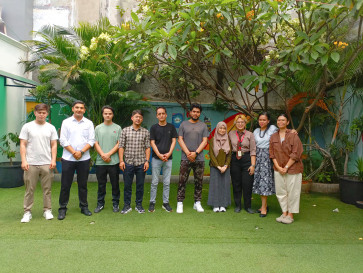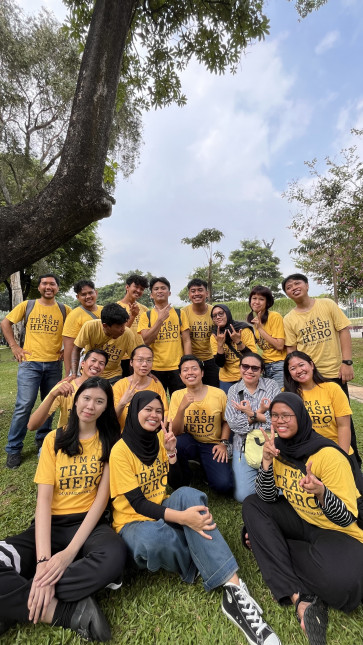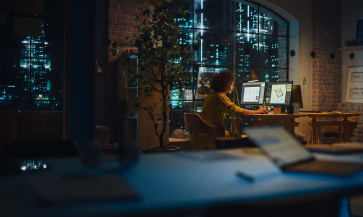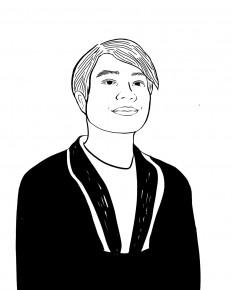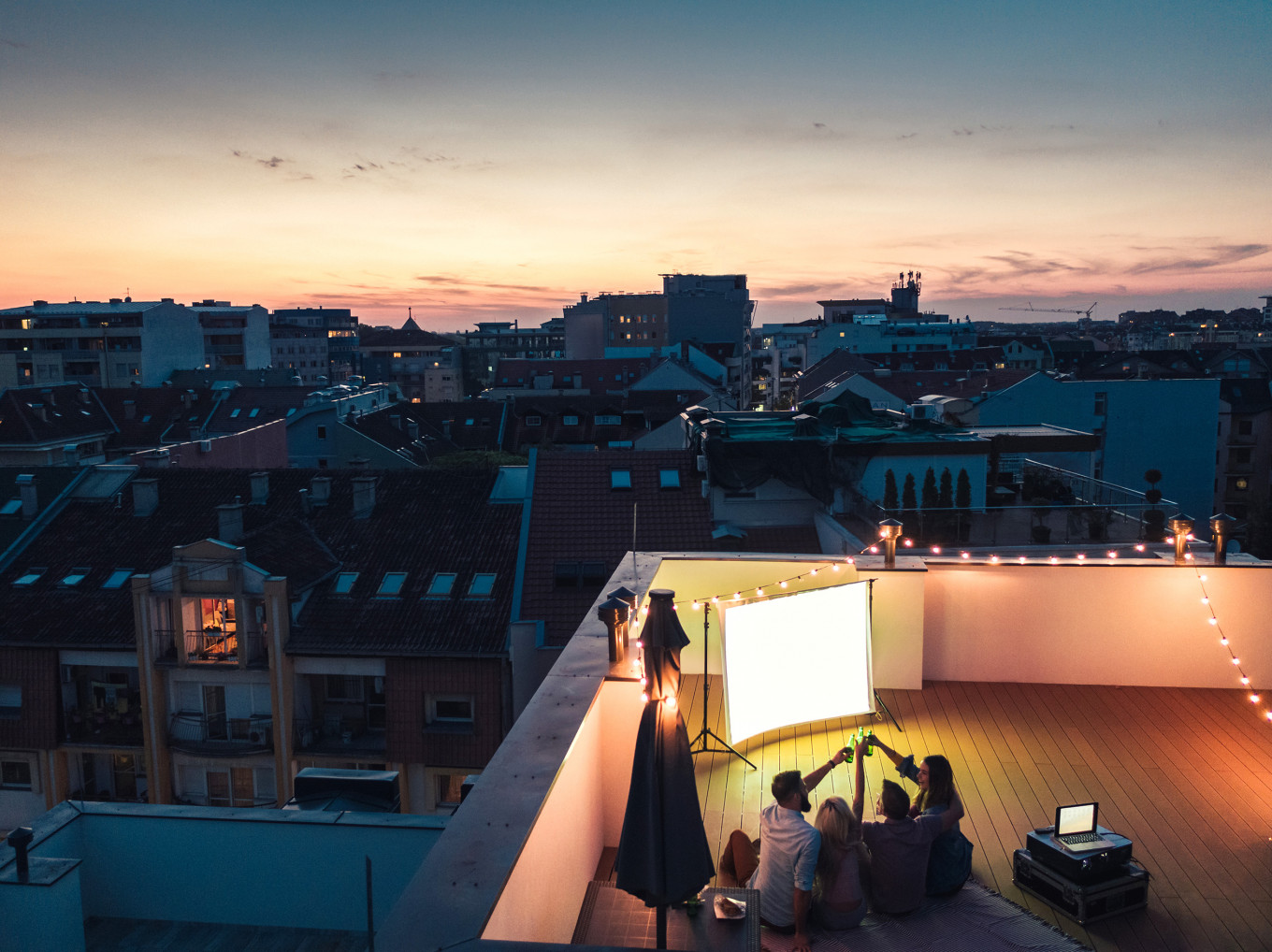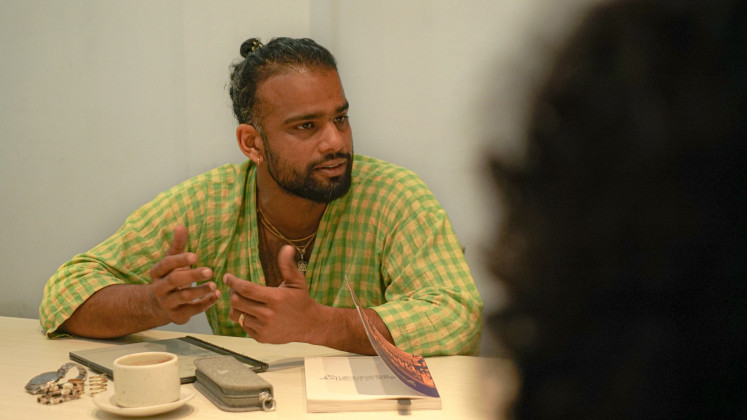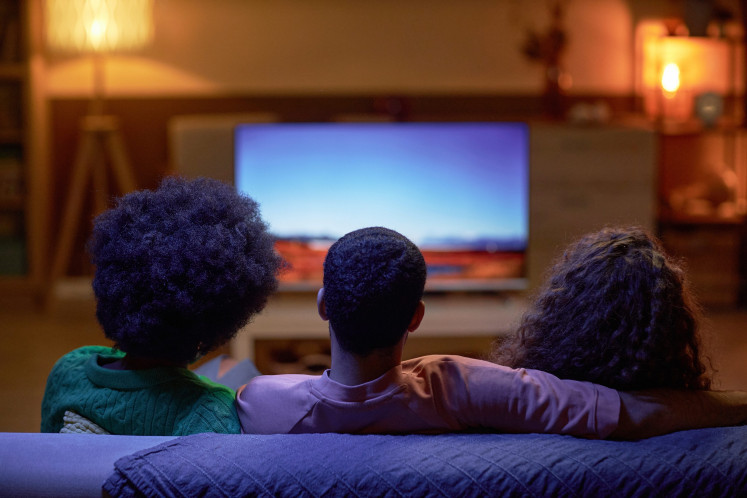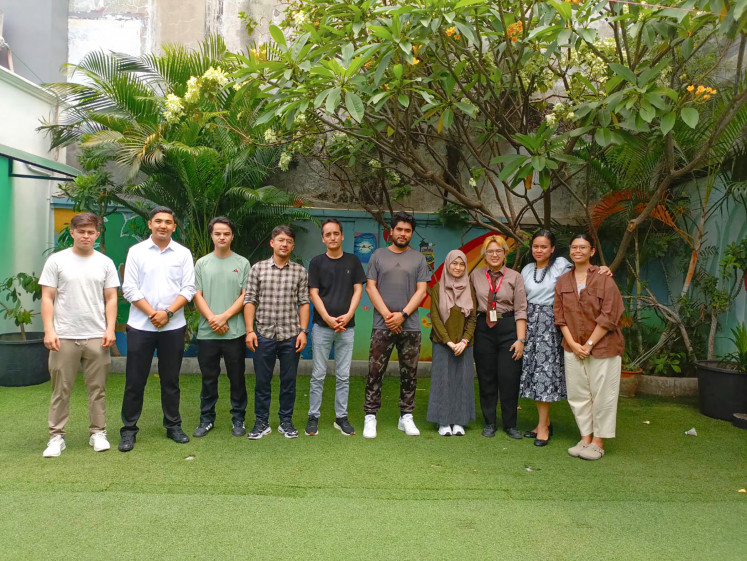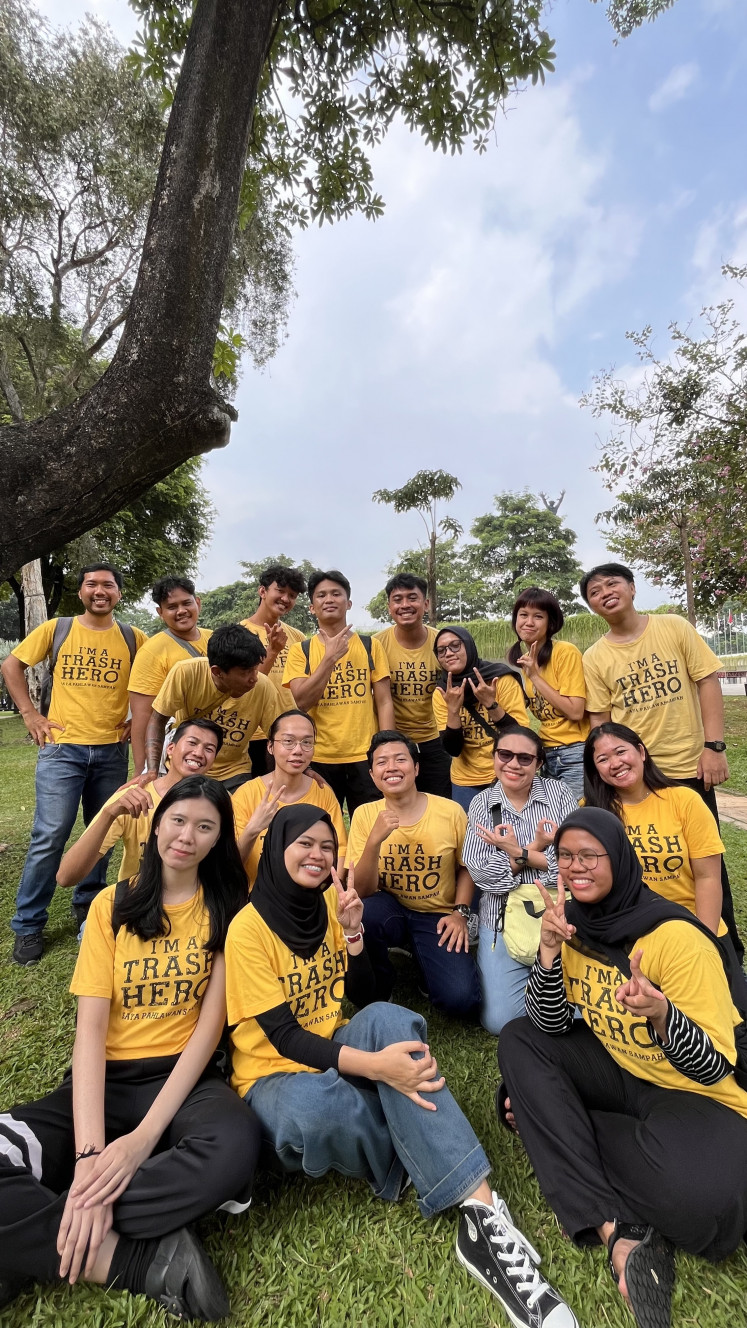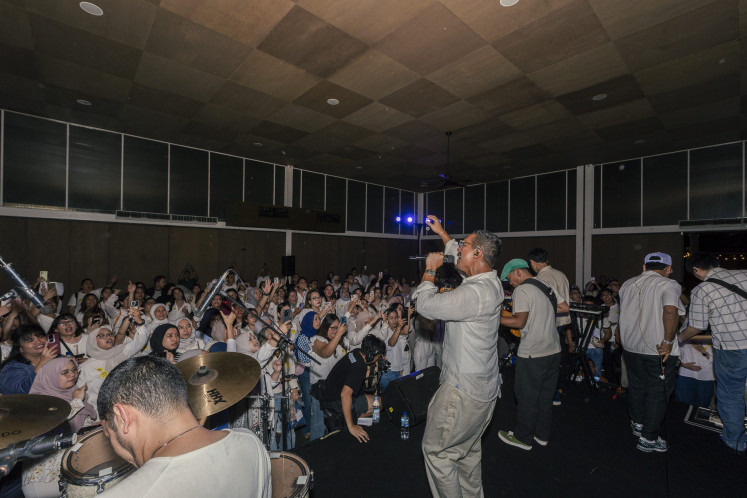We’ve never had more access to films, yet the experience feels lonelier than ever. Between endless scrolling and solo binge sessions, something’s been lost. For some cultural workers and curators, the answer isn’t more content—it’s more connection.
In Indonesia, the idea isn’t new. Nonton bareng (watching together) has long been a way to turn a screen into a shared moment, whether it's cheering for a football match in a warung or reacting to a soap opera with neighbors.
But what happens when this same spirit is applied to films that are harder to find, harder to watch, but maybe more urgent to talk about?
That’s the question driving cultural worker Abishek Nilamber. Based in Berlin but often found organizing programs across the Global South, he’s spent over 15 years creating spaces where cinema becomes a tool for dialogue - not just distraction.
“I entered cinema through street theater,” Nilamber says.
“I was driven to raise awareness for cause-related actions, activism on the stage. Then I realized you could translate that to cinema, so I believe in the potential of movies.”

Thank you!
For signing up to our newsletter.
Please check your email for your newsletter subscription.
From screening films to sharing space
Nilamber’s early work focused on simply getting indie films seen. As cameras became more affordable, making films got easier. But getting people to watch them? That was the real challenge.
"DSLRs became common, so you don't have to rely on a studio infrastructure to make movies,” he says.
“The challenge was actually how would you get to screen these films?”
(ARKIPEL)
So he started organizing small screenings in unconventional spaces—cafés, libraries, rooftops—anywhere people could gather. These weren’t premieres or formal events. They were, essentially, grassroots nontong bareng for indie cinema.
"Back then we were just trying to make a film and have it shown in places where it would otherwise not be seen,” he explained.
That instinct led him to SAVVY Contemporary, a Berlin-based space where artists and researchers reimagine the way art and culture circulate. It’s there that Nilamber helped launch United Screens, a platform that’s less about showing films and more about asking: Who gets to see what, and why?
Watching with questions
United Screens is structured around seven key areas of research: funds, spaces, archiving, aesthetics, censorship, collectivity and technology. These aren’t academic themes - they’re everyday barriers for filmmakers and audiences alike.
“In technology, for example, we delved deep into how digital and internet technology have been appropriated for more lateral circulation of films,” Nilamber says.
The goal was basically to bypass gatekeepers and build community screenings instead.
Since 2018, United Screens has popped up in South Africa, online during the pandemic and most recently in Indonesia, where Nilamber and his collaborators hosted Think Well, a four-day symposium inspired by nongkrong (hanging out). Held in Puncak, the event brought together 70 people from across Asia to discuss how film can better serve the communities it emerges from.
The discussions, spanning copyright to censorship, became the basis for Upendo Megazine, a zine-style publication that captures the ideas exchanged.
(ARKIPEL)
It’s full of messy, honest questions that don't always have neat answers—exactly the kind of space Nilamber hopes to create.
Rethinking what cinema can be
Nilamber recently returned to Indonesia to serve as a jury member at ARKIPEL, Jakarta’s international experimental film festival. It was his third time at the festival, and what struck him most was the distinct energy of Indonesia’s film scene.
“I’ve been here three times, and it's fascinating how things are done here,” he said.
“Collective practice is a major difference, it's so dynamic and evolving, not dictated by strict organizational logic. So because of that, it favors films and cinematic work that diverge from mainstream narratives, showcasing movies that you don’t usually see in Europe, the US and so on.”
To him, this kind of cinema—created and experienced collectively—is about more than aesthetics or story. It’s about community, cultural practice and sharing knowledge.
“Stories that deviate from what's popular are just as important, because film can be a tool that shines light upon uncomfortable topics. There needs to be spaces where you can experience stories from vastly different perspectives.”
(Shutterstock)
He closed our conversation by reflecting on the deeper purpose of watching together.
“The audiovisual component of movies resonates deeply with viewers, possibly ahead of other mediums. Especially when it's enjoyed as a communal experience,” he said.
“When you enter a theater together, a transformation happens, and you all come out changed, having shared the embodied knowledge of the filmmakers.”
Aqraa Sagir is a writer for The Jakarta Post's Creative Desk. He’s chronically online in the hope it would be a useful asset for the job.





